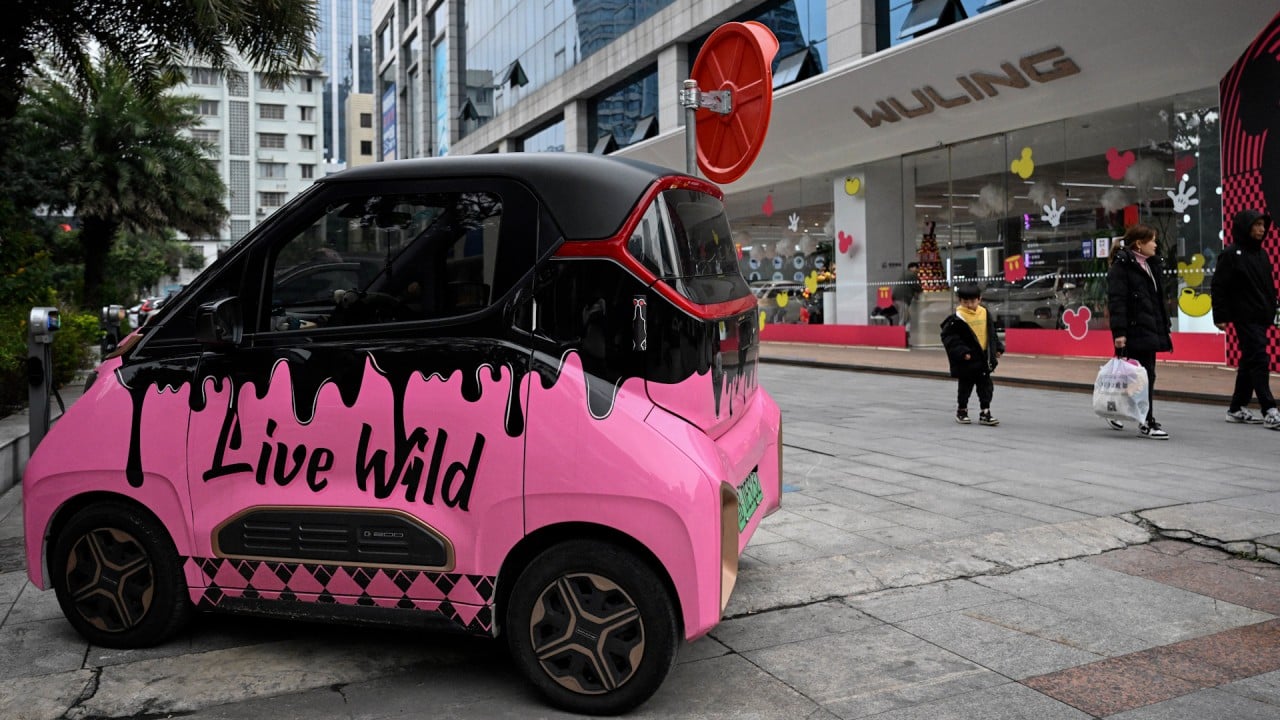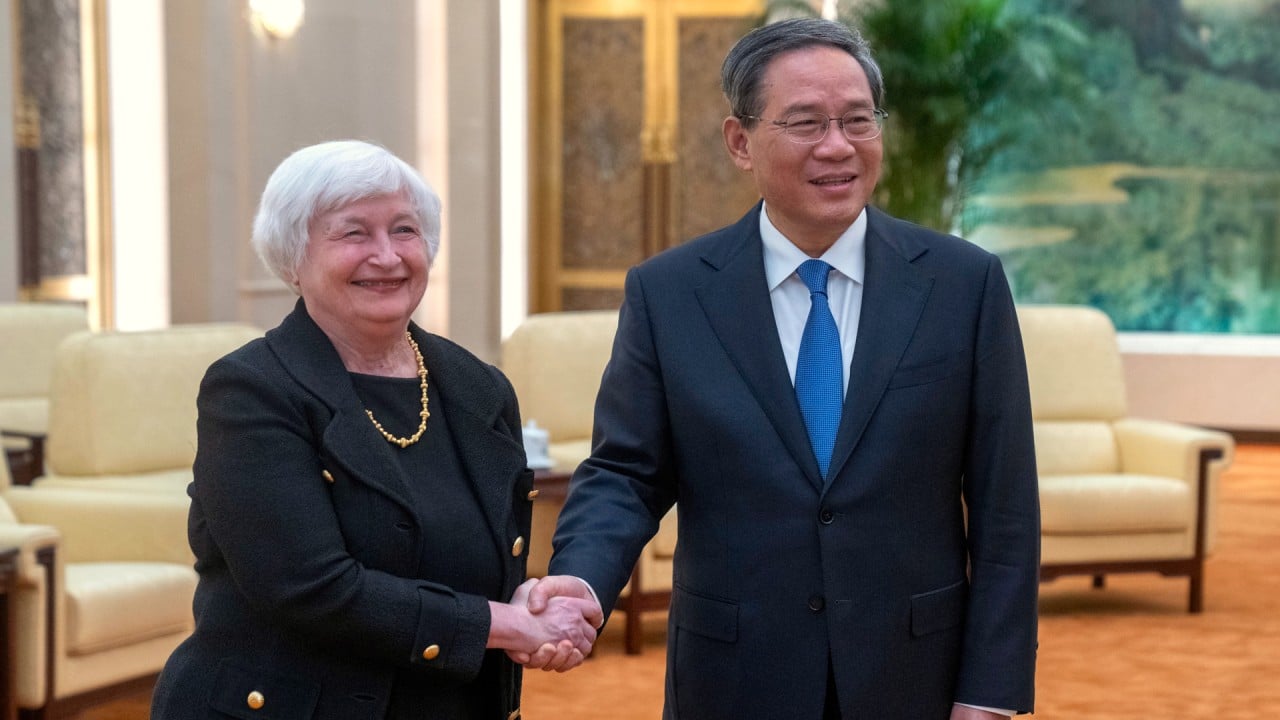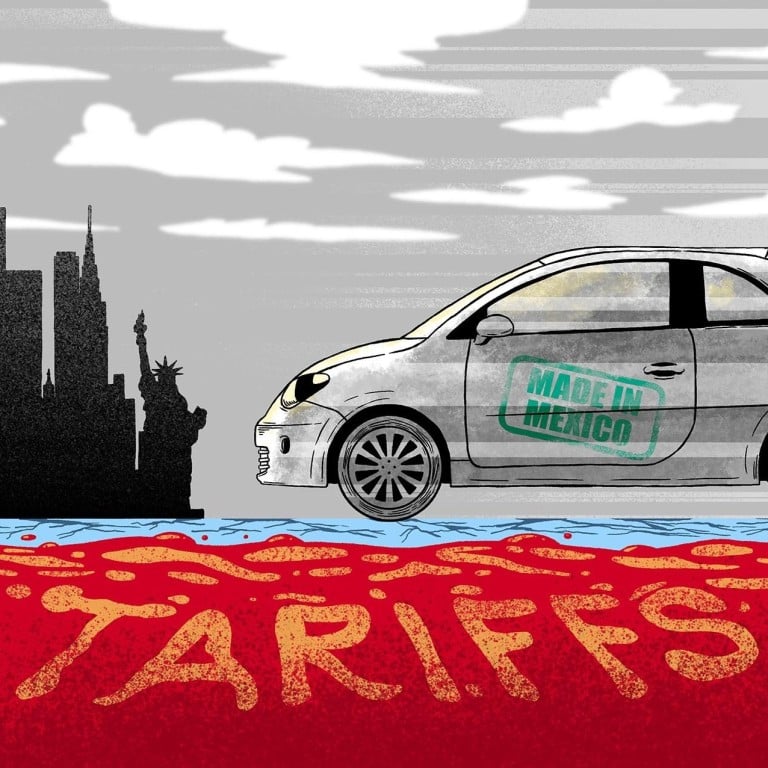
Chinese manufacturers in Mexico tread on thin ice amid threat of more US barriers
- Washington fears that Chinese cars may be able to come over the southern border with zero tariffs under the United States-Mexico-Canada Agreement
- While some believe strict compliance to ‘rule of origin’ regulations can save them, others fear more restrictions may be on the way
“China now is building a couple of massive plants where they’re going to build the cars in Mexico and they think that they’re going to sell those cars into the United States with no tax at the border,” Trump said at a campaign rally in Ohio in mid-March. “We are going to put a 100 per cent tariff on every car that comes across the lot.”
But this may be only wishful thinking amid the soaring political discourse that saturates all channels in the US election season.

Still, this rhetoric has yet to scare off Chinese firms from coming to Mexico, especially as overcapacity at home spurs efforts to expand. While some believe strict regulatory compliance will spare them from becoming political victims, others fear more barriers may be on the way.
So far, the Trump-proclaimed “big monster car manufacturing plants” built by the Chinese in Mexico have yet to happen.
But it is possible the plant could be used as a springboard to the north in the future, they added.
BYD did not respond to requests for comment.
China urged to alter approach as Mexico shifts trade posts, raises tariffs
But thanks to the additional 25 per cent tariffs imposed during the Trump administration, the US has largely kept Chinese EVs at bay.
“The introduction of cheap Chinese autos – which are so inexpensive because they are backed with the power and funding of the Chinese government – to the American market could end up being an extinction-level event for the US auto sector,” the Alliance for American Manufacturing, an advocacy group, said in a report in February.
The US carmaker owned by billionaire Elon Musk announced its plan to build a “Gigafactory” in the Monterrey area last year, though it has yet to break ground.
But many Chinese car parts suppliers there have already put their facilities into operation, currently supplying Tesla factories in Austin, Texas, and Fremont, California.
“One thing is politics, and everyone is talking about it. The other one is like, when companies come set up as a Mexican manufacturing facility here, hiring Mexican employees and complying with the rule of origin, they can definitely supply to the US market free of taxes,” said Emmanuel Loo, undersecretary of investment of the Ministry of Economy in Nuevo Leon, where Monterrey is the capital.
Under the USMCA, which replaced the North American Free Trade Agreement (Nafta) in 2020, as long as 75 per cent of auto content – including key parts – are made in North America, the products can qualify for rule of origin to export to the US.
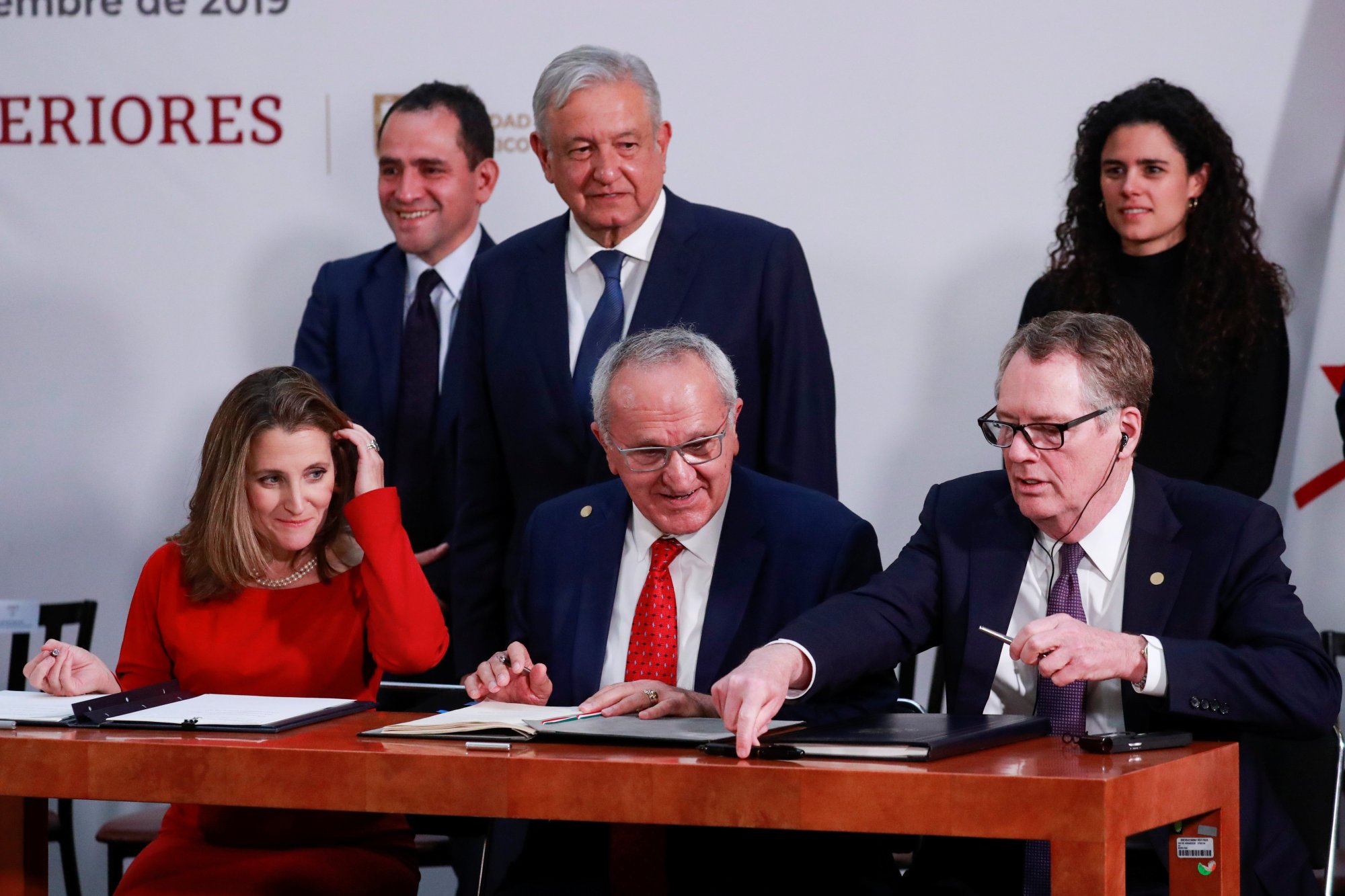
Since the fourth quarter of 2021, 30 per cent of all foreign companies investing in Nuevo Leon have been from China, compared to 55 per cent from the US during the same period, Loo said.
“We didn’t used to have that many Chinese companies. We once had a lot of Koreans, Japanese and Europeans. Now China has become the strong No 2 investor in Monterrey,” Loo said.
In value terms, Chinese investment in the state is still in its infancy, as small suppliers rather than big international brands constituted the majority.
According to official statistics, in the first three quarters of 2023, the top sources of foreign direct investment in Nuevo Leon were Argentina at US$1.39 billion, the Netherlands at US$557 million and the US at US$401 million, while that from China was only US$34.8 million.
US-Mexico-Canada trade deal signed after political breakthrough
But the number may be underestimated. Some Chinese companies have used their overseas subsidiary to invest in Mexico to avoid being labelled as “Chinese investment” in the official record, according to factory managers and experts.
Therefore, from 2018 to 2023, in Mexico the actual figure for Chinese foreign direct investment – which traces the original source of transactions back to the country – should be about US$10 billion, compared with the US$2.3 billion total from Mexico’s Secretariat of Economy, according to Enrique Dussel-Peters, a professor at the National Autonomous University of Mexico.
In Nuevo Leon, there have been some Chinese companies coming and setting up facilities without notifying the local government, Loo said.
“For some of them, we only found out when, for example, the labour secretary went there for inspections,” Loo added.
Beyond these precautions, many Chinese factory managers said they believe that strict compliance with the USMCA will eventually save them.
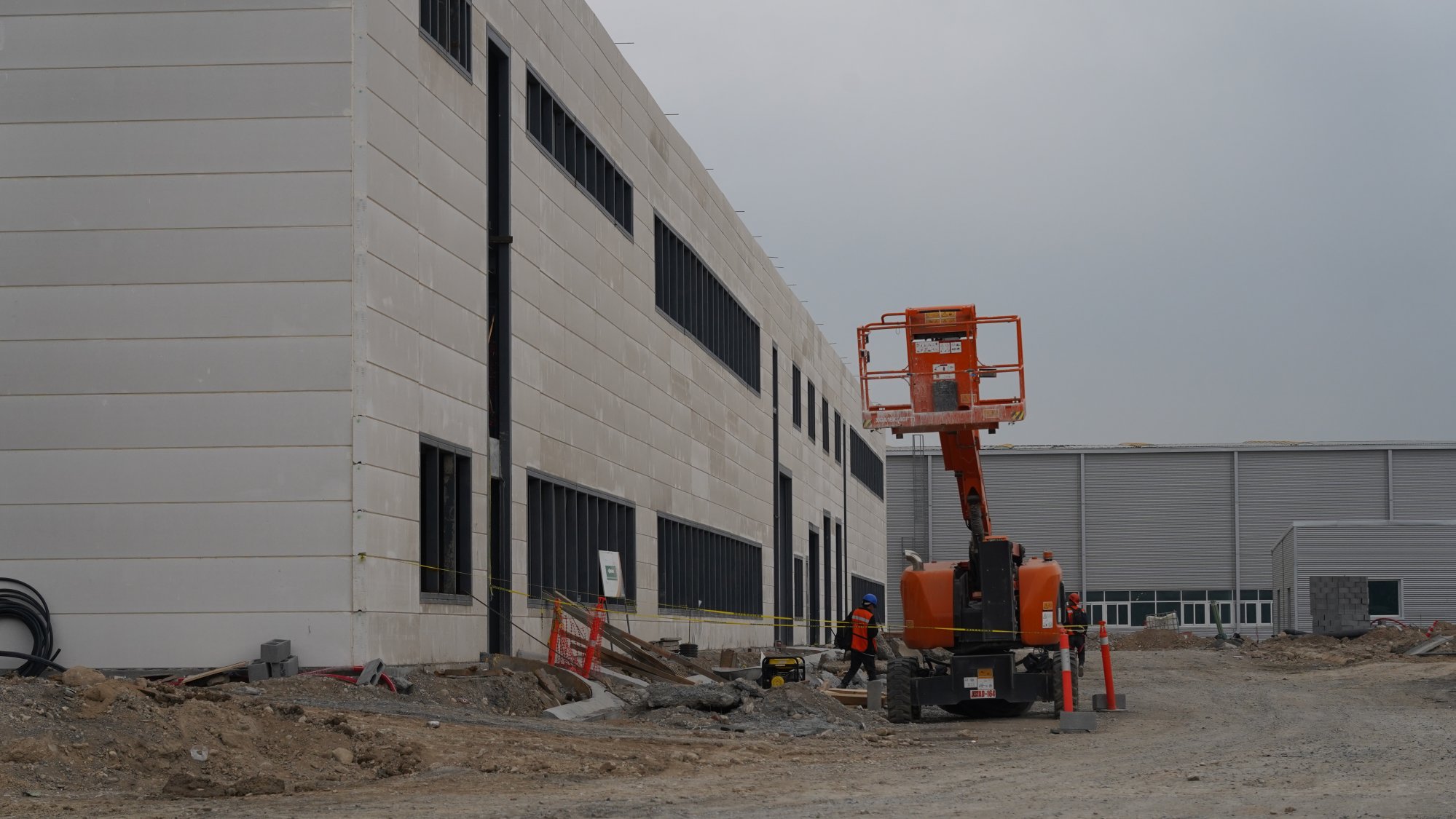
“From the business perspective, we cannot be just scared away. The Chinese can always find a way out,” said Chen Yi, an administration director at Hengli Mexico.
Originally from Jiangsu province, Hengli is a hydraulic component supplier to engine equipment manufacturers like Caterpillar, and its plant in Monterrey is expected to begin operations this year.
“As long as we comply with all the requirements under the USMCA and obtain the rule of origin certificate, and be ready for inspections and review at all times,” Chen said.
But Jorge Guajardo, former Mexican ambassador to China and currently a partner at Dentons Global Advisors, said the US could easily use non-tariff barriers to make it harder for Chinese-funded companies to prove they meet the rule of origin.
During USMCA negotiations, the US added a chapter in which US labour groups can request inspections at foreign plants in Mexico when labour rights violations are suspected.
As Chinese firms launch Mexican operations, managers learn cultural lessons
“So far, it has been used more as harassment than an actual implementation. And my guess is they are going to start targeting Chinese-owned companies in Mexico,” Guajardo said.
This echoes the experience of a Chinese factory manager in Monterrey, whose company’s products are undergoing anti-dumping and anti-subsidy investigation by the US.
“If the United States really wants to target a certain company, the USMCA would not be able to protect you at all,” the manager said on condition of anonymity.
In December, Treasury Secretary Janet Yellen visited Mexico to strengthen cooperation on security and financial issues, with the two sides agreeing to establish a mechanism to monitor and screen foreign investments in the country.
But some Mexican officials and trade experts say no one in the country knows how to implement such an investment screening.
Kenneth Smith-Ramos, a partner at Mexican international consulting firm Agon and the country’s former chief negotiator for USMCA, said the Mexican government would balk at a practice that it would see as discriminating against foreign firms.
“There is an open investment environment [in Mexico],” Smith-Ramos said in March, adding that excluding Chinese participation under USMCA is hard to implement or justify based on current international trading rules.
“How do you not get onto a slippery slope where other countries start discriminating against North American products just by virtue of being North American, and by claiming that they can be a danger to national security of other export markets that are important to North America?” he said.
Still, US pressure on the Mexican government can never be overlooked owing to the leverage that Washington has. Around 85 per cent of Mexico’s exports go to the US, and Mexico overtook China last year to become America’s top source of imports.
“We are just too dependent on America as a partner,” said Victor Gonzalez, a senior adviser for China-Latin America legal affairs at Beijing-based law firm PC Woo & Zhonglun Wende.
For the economic relationship between China and Mexico, it is never truly bilateral but always trilateral, as the US is always in the equation, he added.
“It’s just a matter of time that it becomes political and the economic aspect will become secondary,” Gonzalez said.
With ‘made-by-China’ under US pressure, Mexico’s trade probes spark concerns
Nevertheless, the US’s dependence on lower-cost products made in Mexico and the inability of local industry to provide all the necessary elements of the supply chain presented an opportunity for Beijing, said Eduardo Tzili-Apango, professor of China studies at Mexico’s Metropolitan Autonomous University.
He stressed that trade relations between Mexicans and Chinese have always been contentious, as many sectors such as footwear, textiles and toys have suffered from Chinese competition since the country became a member of the World Trade Organization in 2001.
But as Mexico was unable to advance in more technology-intensive sectors, such as electronic components, inevitably it became dependent on the Chinese supply chain.
“In order to … export more to the North American market, we have to import more from China,” Tzili-Apango said.
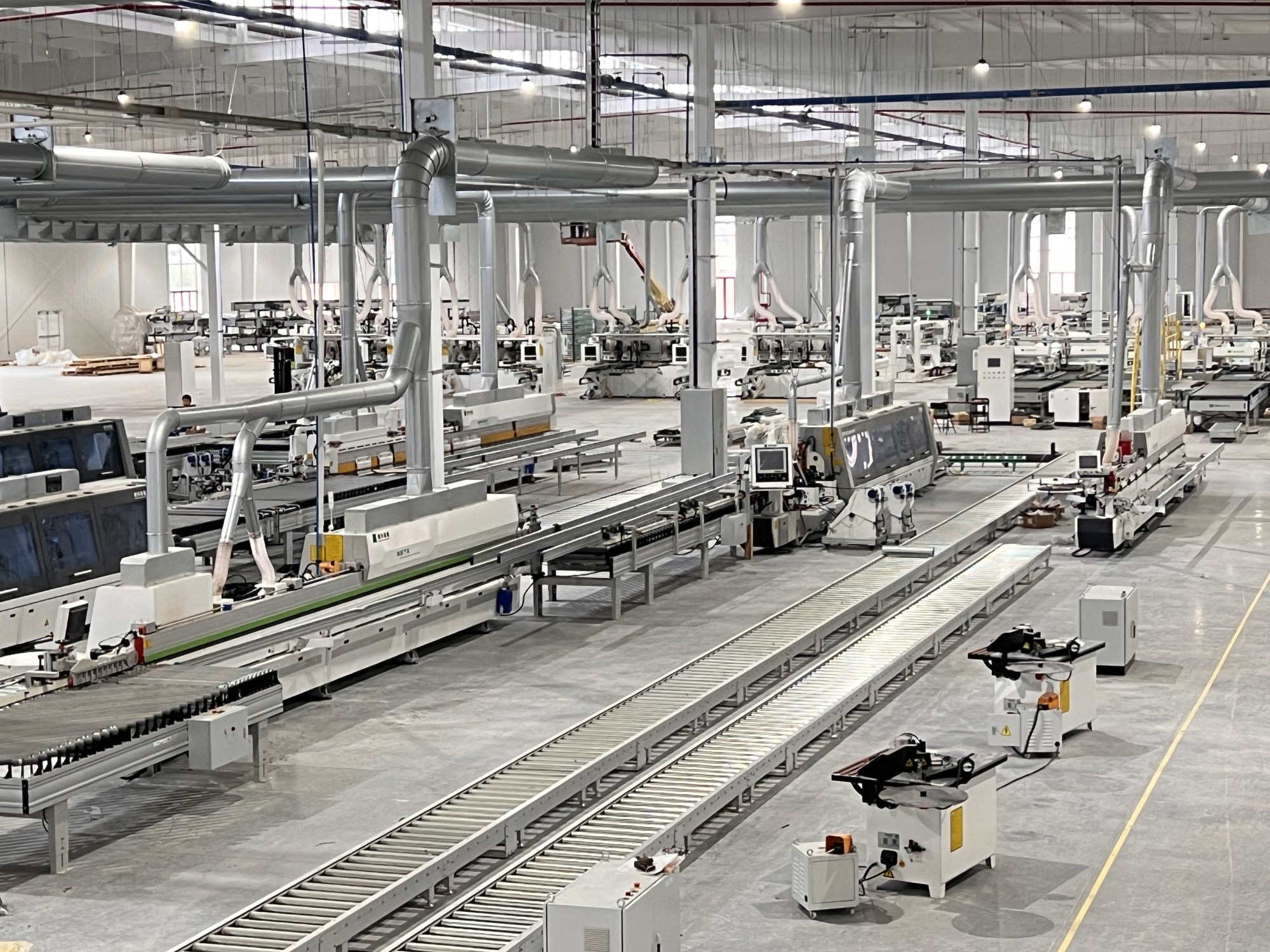
For Simon Zhao, who came to Mexico from China 14 years ago and later founded Solarever, a Mexican solar panel manufacturer now expanding business scope to EV and batteries, industrial inputs from the Chinese supply chain are irreplaceable for his industry.
“Of course we need suppliers from China. As a leader in Mexico for the renewable energy sector, if we want to grow better, we need to cooperate internationally, including with China, the US and Europe,” Zhao said.
Despite policy uncertainties, for many Chinese manufacturers that have already set foot in Mexico, there is almost no way back.
“We have bought land and built factories. Of course we are worried. But now we can only move forward,” said Eric Liu, general manager at Sunon, an office furniture producer in Mexico.
The company, originally from Zhejiang province, was convinced by its US clients to move to Mexico in 2021, and invested US$70 million in its Monterrey factory that went into operation two years later.
China’s 17-year run as top source of US imports ends as Mexico rises
Compared to the automobile sector, the furniture industry involves fewer technical barriers, and thus has attracted little US attention. But higher costs – from labour, logistics and local procurement in order to comply with the rule of origin under the USMCA – have yet to justify the move, Liu said.
As of the end of last year, Sunon’s general operation costs in Mexico were 38 per cent higher than in China, compared with the 25 per cent US tariffs imposed on furniture imports directly from China.
“If Trump gets elected again and elevates tariffs on Chinese imports, producing in Mexico would make more sense,” Liu said.
The former president, however, could be an “even bigger disruptive element” for the economic dynamic between China and Mexico, said Tzili-Apango.
“If Trump wins, one of the biggest political pressures on Mexico might be renegotiating USMCA with the condition that we reduce our trade relations with China,” he said.
“And that would be very harmful to our economy.”
Additional reporting by Igor Patrick





